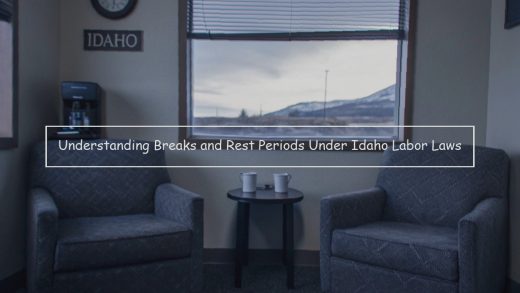Exclusive Right to Buy Agreement Explained
An exclusive right to buy agreement is a contract between a buyer and a real estate agent that gives the agent the exclusive right to sell a particular property. When you sign an exclusive right to buy agreement with a real estate agent, they will be your exclusive agent for the process of purchasing your new home. This is different from a regular right to buy agreement, which means that you can easily switch agents if you decide that you no longer want to keep working with said agent. A right to buy agreement without exclusivity requires that you give notice to the real estate professional before terminating the agreement .
The main point of getting an exclusive right to buy agreement is that once signed, it means your agent is entitled to a financial reward if he or she succeeds in purchasing a home with you. For example, if an agent successfully sells the property that you were interested in buying, they will receive a commission of between 2 and 3% of the cost of purchasing the property. This represents the main advantage of using a real estate agent for the purchasing process, rather than buying directly from the owner, as agents get preferential access to the majority of the good deals that occur in your area.

Exclusive Right to Buy Agreement Essential Elements
There are a number of common clauses and terms that you will generally see in an exclusive right to buy agreement. The following are some of the most important:
Call Clauses – a call clause, or call option, allows the buyer the right to a sale (or at least to complete an exchange for title to a property) at a future date. Any call provisions will generally require that they be exercised within a period of time.
Option Price – either it is common for a price to be listed in the agreement, itemizing the sale price for the property, or it is common to have the provisions to have them not disclose the price. The latter may be subject to negotiation at the outset before the agreement is entered into. A seller may be more amenable to an exclusive right to sell agreement if he knows that the price will not be disclosed.
Financial Incentive Clauses – clauses which allow for a financial payment under certain circumstances. For example, the buyer may not be able to fulfill the obligations set forth in the exclusive right to buy agreement. In these instances, the seller may require a financial payment as compensation.
Payment of Commission Clause – if the deal is completed and the buyer receives a commission, the agreement can stipulate that the seller will be responsible for paying the office through which the commission finder was obtained. It is more common for a buyer to be liable for the commission payment.
Exclusive Right to Buy Agreement Advantages
A mutual commitment of this kind has a number of benefits for both the buyer and the broker. Most likely, the buyer will get a better deal because it is committed to this agent, and the agent can commit their time to helping this buyer to find what they are looking for with less chance that something better might come up.
This means that the agent gets more of a commitment from the buyer to work exclusively with them, which can mean that they will want to do whatever it takes to sell something to this buyer, or find them the best possible home. Clearly, the agent has a vested interest in ensuring that the process goes as smoothly and as hassle free as possible, and that the best property or properties are found.
For the buyer, it means that they can return to this agent time again and again, knowing that they won’t have to keep starting over with a new agent every time they want to see properties. All of the legwork and finding of potential properties is done, and when the buyer finds the right house, they are ready to make an offer. The whole process starts much closer to the end game, making it easier on both sides.
Exclusive Right to Buy Agreement Dangers
Like any binding agreement, there are risks associated with entering into an exclusive right to buy agreement. Firstly, the property is not marketed for sale meaning that the buyer will not be aware if there are better or worse online deals available for either the same home or indeed a similar home (e.g. in a different area). When you eventually do become the owner of the property, it may not live up to your expectations. Given this is an agreement that you are likely to enter into for a short time period (e.g. an option agreement of three months) before having to commit to either buy or walk away, you might think this is an acceptable risk. However, the agreement is also binding on the seller even if they find a better deal. So, what should you expect on the selling side? The selling estate agent may be a little annoyed that they have set aside the entire marketing campaign to achieve their commission through the exclusive right to buy agreement and it has fallen through or that you are taking time from them to get an alternative sale completed. If you are not buying within six months of entering into the exclusive right to buy agreement, it is more likely the seller will agree to refund the agreed fee but you can never be certain. Therefore, you should choose your agent wisely as there are many agents unwilling to refund the buyer and some who ignore the fee agreements they have. In our experience, agents who produce exclusive right to buy agreements often work on a "no sale, no fee" arrangement and also charge much higher commissions than the market rate. We cannot stress enough the importance of getting the wording of your exclusive right to buy agreement correct if you are selling a home. It is your opportunity to ensure your associated costs are covered. It is also your opportunity to maintain a clear line for the buyer as to exactly what fees you will permit to be deducted from the sale proceeds. Finally, you should be aware that like any home seller, you may get stalled or "gazumped". For example, you accept the cash offer from a buyer and decide to withdraw from the house buying process to explore sources of funding with which you could buy the property. If a new buyer comes along with a cash offer even though you may have sole rights to buy the property, the seller may well accept the new offer even if they owe you a refund of the agreed sum. Such circumstances occur regularly and the buyer may be at first pleased to receive a refund but later very annoyed by the behaviour of the seller.
Exclusive Right to Buy Agreement Negotiation Tips
Negotiating the terms of an exclusive right to buy agreement can be a complex process, but with the right approach, buyers can ensure their interests are safeguarded. The first step is to engage in open and honest discussions with the counterparties in order to gain a clear understanding of their respective goals and needs. This may involve identifying potential obstacles and addressing them in advance.
A critical aspect of negotiation is carefully examining the duration of the exclusive right to buy period. Shorter periods often mean that all parties will need to be more active in the search for property, so consider the implications of this on your schedule and other commitments . Endless or lengthy periods can trap both the buyer and seller in an agreement that no longer meets their needs – an extensive 12 month period seems tenable upfront, but by month 10 or 11, you may find that you are ready to move forward.
It is also essential to consider what will happen if another offer falls into your lap. How quickly will it be entertained? Will notice need to be given? And what if you have simply changed your mind? Buyers should address how informal or formal the process will be to avoid disputes later on.
Buyers also need to think about how their position will change over time and how often they want that to happen. While it is preferable to have the flexibility to adapt as time passes, it is important to be aware that frequent rewrites leave a lot of room for error. It is necessary to balance the need for flexibility with a desire for certainty.
Exclusive Right to Buy Agreement Rules and Procedures
Legal implications surround every stage of a commercial real estate transaction. Therefore, it is essential to consider the legal aspects of exclusive right to buy agreements. Legally binding contracts between a seller and a buyer, exclusive right to buy agreements are not unlike purchase and sale contracts. In most states, this type of agreement must be recorded with the local or state authority in order to be legally binding.
Regarding terms and conditions, exclusive right to buy agreements have clauses that explicitly outline the rights granted to the buyer and seller. Such clauses may indicate (1) the amount of time the agreement will be in effect, (2) the terms of a commission due to a third party, such as a real estate professional, and (3) the purchase price. In general, exclusive right to buy agreements transfer all rights. However, there are also non-exclusive right to buy agreements that specify the rights a buyer now has to a particular property. Of course, sellers can include addendums to these contracts if they plan to keep certain rights. State laws may dictate the amount of information a seller must disclose to a prospective buyer. Since exclusive right to buy agreements may be governed by state laws, legal guidance can help sellers and buyers decide what is relevant and should be included in such agreements.
Whether acting as a buyer or seller, parties to exclusive right to buy agreements must comply with applicable state and local laws.
Exclusive Right to Buy Agreement Tips for Purchasers
First and foremost, it is crucial that buyers do their homework before entering an exclusive right to buy agreement. Make sure you fully vet any potential real estate agents or agencies with whom you may work. It is always a good idea to check for any record of disciplinary actions or other legal issues, and always assume that you – not your agent – are responsible for hiring the correct agent.
Take the time to read online reviews and employment history, and ask for recommendations from friends and family members if you are in need of a place to start. Once you have narrowed down your choices, interview two or three agents to evaluate them in a side-by-side manner. Pay careful attention to how each responds to your questions and needs. You will want to work with a responsive and helpful agent throughout the homebuying process, so it pays to do your research upfront.
When you enter an exclusive right to buy agreement , you will need to negotiate the terms and details of the contract in much the same way you would a residential real estate sales contract. Carefully review the price and list of properties that the buyer agrees to use the agent as an exclusive contact for. If the buyer fails to buy or lease a property within the agreed period of time, the agent retains the right to either a percentage of the commission if the buyer purchased a property out of the exclusive period, or to apply the compensation to future commission payments if the buyer purchases a property in the future. An agent may also charge an hourly fee for their work through the exclusive period.
The person who signs the exclusive right to buy agreement does not necessarily need to be the individual who buys the property in the end. For example, a couple may sign an agreement in both of their names, but only one of them may be listed on the title. You can also assign rights to other individuals during the exclusive right to buy period; for instance, you can designate someone else to look for properties on your behalf.



